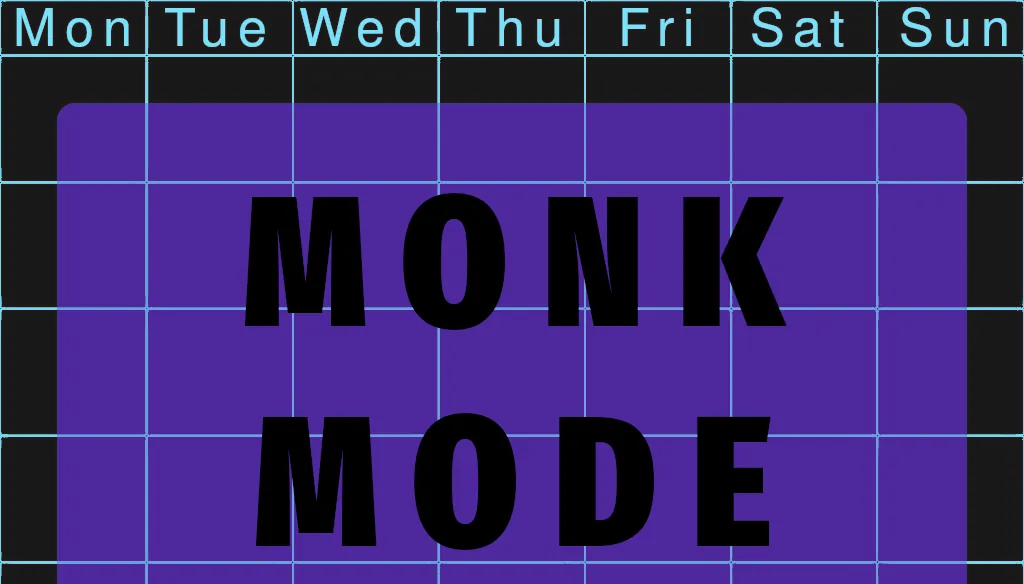We all have those days when we don’t feel like it. The cold bathroom tiles do nothing to wake us up and as we reach for an empty bag of coffee, sighing to ourselves “Not again.” These days make or break us, sometimes to get things done we need a little motivation.
This article is the sixth in a series, How to Get More Done. Each post covers a different aspect of becoming the most productive version of yourself.
What to Do on Days We Feel Demotivated?
“What do I do on those day? I go anyway.”
Jocko Willink
Those people that can go all out even on the days they just don’t feel like it are certainly not reading this blog, for the rest of us, we need a little pick-up.
These days come and go, but we need a plan for when they come. Setting yourself a grueling 2-hour workout plan is great, but on days when you didn’t sleep well, had a hard day at work, or got home exhausted, will you still do it?
We need a plan for those days.
It’s those days when you feel like skipping your work (whatever it is) that will make or break your goals. Rather than skipping, here are some alternatives.
Do Less but Do Something
- Turn that 2-hour workout into a quick 30 minutes of your most important lifts.
- Instead of writing a chapter, write a page.
- Instead of tidying the house, tidy a room.
A few things happen when you decide to less but something
- You build the habit
Whether it’s playing guitar or practicing calligraphy, reading, or learning to code, when you do it every day, your body and mind get used to doing it. The friction to getting started reduces and you find it easier to start, even on the days you feel demotivated. - You make progress
This may go without saying but, those short piano practice sessions build up. If you’re supposed to practice an hour every day but don’t feel like it three times a week, doing less (like a 20-minute practice session) nets you an extra hour over the week. That’s an hour of practice you wouldn’t have done otherwise. - You’ll want to continue
When you tell yourself you just need to study for 15 minutes, it’s much easier to get started, but when the 15 minutes are up, it’s also easy to keep going. You’re in the mindset, you’re in the flow and the hard bit is over, so you do a little more.
All these factors work together, by telling yourself it’s OK to do less as long as you do something, you’ll make so much more progress than taking an occasional day off.
Make Your Goal Easier
Sometimes our goals are so big that we get overwhelmed, don’t know where to start, or just feel like we’re never going to accomplish them.
David Goggins tells an inspiring story using “make it easier.”
David was working a job he hated, getting off work and settling on the couch with a box of doughnuts each night when finally he’d had enough. A documentary about Navy Seals gave him the motivation to get up and start losing weight.
He set himself the goal of running a mile but when he got outside he realized he was just in too bad a shape to achieve it, rather than resign himself back to the couch, he made it easier – he bought a stationary bike.
Eventually, he did drop the fat and became one of the greatest endurance athletes of all time. But it started with changing his goal and making it easier.
Focus on Goals You Can Control
Input goals are better than output goals.
An output goal is a result we want to happen, but often we don’t have control over when or if we will achieve the goal.
There is nothing more demotivating than setting a goal and working on it consistently only for it never to materialize. Avoid becoming unmotivated by focusing on what you can achieve.
We can control what we do and our goals should reflect this. Input goals are goals based on what we do instead of the result of what we do.
Convert your output goal into an input goal and feel the motivational effect of completing it every day,
| Output Goal | Input Goal |
|---|---|
| Become fluent in French | Take 10 online Fench Classes this month |
| Finish a book a week | Read for 30 minutes every day |
| Get a Promotion | Spend 30 minutes in the office each evening developing XYZ skill |
| Build a Best-selling Game | Write 50 lines of code every day |
| Sell 10 Widgets today | Call 100 potential customers today |
| Get 1000 followers | Post 100 pieces of content |
| Lose 40 lbs | Workout an hour every day |
Delegate to Get More Done
It rarely occurs to most people that you can get someone else to do the things you dislike, but it’s true. Delegating is a powerful tool to use anytime but we can also harness it for days when we feel unmotivated.
If you don’t want to cook, get takeout. Don’t want to work out, hire a trainer for today. Burned out from writing? Hire a writer or an editor.
The third article in this series is all about delegating so I won’t go into detail here but with so many options for hiring freelancers now, delegating is always an option.
What Types of Motivation Are There?
Speeches
I love listening to motivational speeches either while I’m working out to push me a little harder or before I start a big task. Here is one of my favorites on Youtube.
Music to Keep You Working
Some can work with background music while others can’t, either way, great music can be motivating to use before you start working. Just as a fast song will make us drive faster, a powerful song will give us confidence and a sad song makes us feel more vulnerable.
Here is some great motivational music:
- Lofi – for long tasks
- drum and bass – for tasks when you need a push (for me it’s editing)
- Film Scores – for creative tasks
Movies to Inspire and Motivate You
I’m sure the number of archeologists went up after the first Jurassic park movie and people drinking pinot noir after Sideways. Movies can stir our souls and create deep desires within us. I’ve spent a lifetime studying martial arts largely because I grew up watching Bruce Lee movies.
If you’ve lost motivation for studying French, go watch Amilee, or if you’re demotivated with coding watch The Matrix. Find a movie about whatever you want to do and get inspired again.
Experts Are Motivating
Nothing motivates me more than watching an expert do what I want to do. Watching an expert barista make beautiful coffee art, makes me want to make (and drink) more coffee. Seeing a UFC pay-per-view makes me want to go train. Listening to David Allen makes me want to get more productive.
Experts have an energy, they have it and we want it. Watching an expert do his or her thing will give you a quick shot of motivation. Hopefully, it’s what you need to get things done today.
Achievements – You Can Do It
Hearing that Eddie Izzard ran 32 marathons in 31 days, made me feel like I could probably run one marathon. When people I knew told me they wrote 100,000 words in a month, I found myself writing more each day.
Hearing the achievements of others can be hugely motivating, especially if they are regular people or people you know.
When you hear about someone’s great achievement, make note of it. Save it for fuel later and bring it out when you need a push.
Change Things Up
Sometimes all it takes to inject some excitement back into your routine is a change-up.
- Change location – go to a cafe to work today, or just go outside
- Download a new productivity app you’re excited to try
- Eat something you normally wouldn’t
- Buy yourself a new gadget or tool that makes you excited to get to work
Common Motivation Problems
If you’re feeling unmotivated, you may be suffering from one of these problems
- You don’t know exactly what you want
You need to figure out what you should do first.
- You don’t know exactly how to get it
You must break your goal down into actionable steps
- Low energy
Make sure your diet is on point. Especially caffeine, and alcohol.
- Loss of enthusiasm
“Do it anyway,” and use the motivational techniques above to push you.








